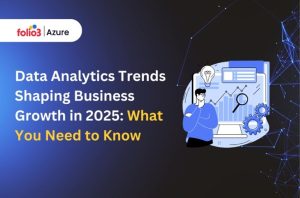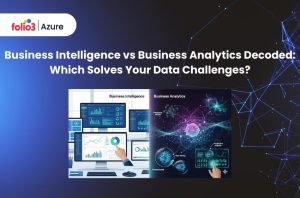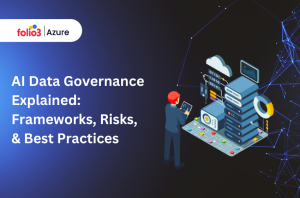Table of Contents
ToggleIn today’s data-driven landscape, the seamless flow of information is critical for businesses seeking to stay competitive. The amalgamation of data from disparate sources, the transformation of this data into usable formats, and its subsequent loading into a target system is the essence of data integration.
This process is facilitated by ETL (Extract, Transform, Load) tools, a vital component of modern data management. In this article, we will explore the top 10 Big Data Integration ETL tools that can revolutionize the way businesses handle their data.
Introduction: Data Integration
Data integration is the process of combining and transforming data from diverse sources into a unified view. This integration helps organizations extract valuable insights and make informed decisions. It’s an essential part of today’s data-driven business world.
What is ETL?
ETL stands for Extract, Transform, Load. It’s a process that involves three primary stages:
- Extract: Data is gathered from various sources, including databases, applications, and external systems.
- Transform: The extracted data is then transformed to meet the target system’s requirements. This can involve data cleaning, structuring, and validation.
- Load: The transformed data is loaded into a target database, data warehouse, or application.
ETL tools are software applications designed to automate these processes efficiently.
What do Data Integration Tools Do?
Data integration tools facilitate the process of ETL by streamlining and automating data movement. They offer various features, including data extraction, transformation, and loading. These tools enable data engineers and analysts to work with data from different sources in a structured and efficient manner.
Now, let’s explore the different types of ETL tools available in the market.
4 Types of ETL Tools
ETL tools come in various types, each with its own set of advantages and disadvantages. Understanding these four types is essential when selecting the right tool for your organization:
1. On-Premise ETL Tools
On-premise ETL tools are installed and run within a company’s infrastructure. They offer control over data security and infrastructure, making them suitable for organizations with strict compliance requirements.
2. Cloud-Based ETL Tools
Cloud-based ETL tools are hosted on cloud platforms, such as AWS, Azure, or Google Cloud. They are scalable and provide cost-effective solutions for companies looking to leverage cloud resources.
3. Open-Source ETL Tools
Open-source ETL tools are freely available and provide the advantage of community-driven support and customization. They are ideal for smaller businesses with budget constraints.
4. Proprietary ETL Tools
Proprietary ETL tools are commercial products with licensing fees. They often come with advanced features, dedicated support, and enhanced security, making them suitable for large enterprises.
Key Factors to Consider When Choosing Data Integration Tools
When selecting the right ETL tool for your organization, it’s essential to consider a few key factors:
- Data Sources: Ensure the tool can handle the types and volumes of data sources your organization uses.
- Scalability: Consider whether the tool can scale to meet your growing data needs.
- Ease of Use: Evaluate the tool’s user-friendliness and whether it aligns with your team’s skillset.
- Integration Capabilities: Look for tools that seamlessly integrate with your existing software and data systems.
- Cost: Consider your budget and whether the tool offers a cost-effective solution.
10 Best ETL Data Integration Tools to Consider
Let’s now explore the ten top data integration tools you should be keeping an eye on in 2024.
1. Azure Data Factory
Azure Data Factory is a cloud-based ETL tool by Microsoft. It offers a range of features, including data integration, data transformation, and data loading. With a pay-as-you-go pricing model, it’s a cost-effective solution for businesses of all sizes.
Key Features:
- Data Integration: ADF excels at data integration. It allows you to connect to various data sources, both on-premises and in the cloud, bringing all your data into one place. This centralized data hub simplifies data management and analytics.
- Data Transformation: A critical aspect of ETL, data transformation involves cleaning, structuring, and enriching data. ADF provides a range of transformation activities and data-wrangling options, enabling you to prepare data for analysis.
- Data Loading: Once data is extracted and transformed, it needs to be loaded into a target system, which could be a data warehouse, a database, or an analytics platform. ADF supports this final phase of ETL, ensuring that your data is in the right format and location for analysis.
- Pay-As-You-Go Pricing Model: Azure Data Factory follows a pay-as-you-go pricing model. This means you only pay for the resources and services you use, making it a cost-effective solution. It’s particularly advantageous for businesses of all sizes because it allows smaller companies to start with minimal costs and scale as they grow.
- Scalability: ADF is designed to handle data integration at any scale. Whether you’re dealing with small data volumes or big data, you can scale your ADF deployment up or down to meet your specific needs. This scalability is a significant benefit, as it ensures your ETL processes won’t become a bottleneck as your data requirements increase.
- Serverless Data Integration: ADF provides a serverless mode, allowing you to automate and schedule your data integration workflows without the need to manage servers or infrastructure. This serverless approach simplifies operational overhead and reduces costs.
| Pros | Cons |
| Integration with Azure services | Learning curve for beginners |
| Scalability | Limited support for non-Microsoft data sources |
| Serverless data integration |
2. IBM InfoSphere DataStage
IBM InfoSphere DataStage is a comprehensive ETL tool known for its robust data integration capabilities. It offers a visual interface for designing data flows and supports a wide range of data sources.
| Pros | Cons |
| Powerful transformation features | Costly licensing |
| Scalability and high performance | Steeper learning curve |
| Strong data governance and data lineage |
3. Talend
Talend is an open-source ETL tool with a strong focus on data integration and transformation. It provides a user-friendly interface and supports both cloud and on-premise deployment.
| Pros | Cons |
| Open-source and cost-effective | Less advanced features compared to some commercial tools |
| Rich library of pre-built connectors | Limited scalability for large enterprises |
| Active community support |
4. Stitch
Stitch, by Talend, is a cloud-based ETL service that simplifies data integration. It’s designed for ease of use and is well-suited for startups and small to medium-sized businesses.
| Pros | Cons |
| Rapid setup and integration | Limited support for complex data transformations |
| Cloud-native and scalable | Less suitable for large-scale data integration |
| Automatic schema detection |
5. Panoply
Panoply is a cloud-based ETL platform designed for modern data warehouses. It offers a simple, code-free approach to data integration and transformation, making it accessible to non-technical users.
| Pros | Cons |
| Auto-optimization of data storage | Limited advanced transformation capabilities |
| Automated data syncing | Costs can increase with growing data volumes |
| Easy-to-use interface |
6. Pentaho
Pentaho, now a Hitachi Vantara product, is an open-source ETL tool that offers a wide range of data integration, transformation, and visualization features. It’s known for its strong community support.
| Pros | Cons |
| Open-source and cost-effective | Limited in-database processing support |
| Extensive data integration capabilities | The steeper learning curve for complex scenarios |
| Comprehensive reporting and analytics |
7. Qlik
Qlik offers a range of data integration and analytics tools, including QlikView and Qlik Sense. These tools are known for their interactive and user-friendly dashboards.
| Pros | Cons |
| Associative data model for easy exploration | Licensing costs |
| Strong data visualization capabilities | Limited ETL features compared to dedicated ETL tools |
| Rapid deployment |
8. Oracle Data Integrator (ODI)
Oracle Data Integrator is a comprehensive ETL tool that supports data integration across various Oracle products and other databases. It’s well-suited for organizations heavily invested in Oracle technologies.
| Pros | Cons |
| Native integration with Oracle databases | Licensing costs |
| Strong support for big data integration | Complex setup and configuration |
| High performance |
9. Boomi
Dell Boomi is a cloud-based ETL tool that focuses on ease of use and rapid integration. It’s a popular choice for businesses looking for a simple and scalable ETL solution.
| Pros | Cons |
| User-friendly interface | Pricing can be on the higher side |
| Pre-built connectors for various applications | May require custom coding for complex transformations |
| Robust support for hybrid environments |
10. Informatica
Informatica is a well-established ETL tool with a strong focus on data integration, data quality, and data governance. It’s widely used in enterprises for its comprehensive suite of tools.
| Pros | Cons |
| Powerful data integration and transformation capabilities | Higher licensing costs |
| Extensive connectivity to various data sources | Complex configurations for larger deployments |
| Robust data governance and data lineage |
These are the top 10 Big Data Integration ETL tools, each offering unique features and capabilities to cater to different business needs. When selecting an ETL tool, it’s crucial to evaluate your specific requirements, budget, and the technical expertise of your team.
How Folio3 Can Help with ETL
Choosing the right ETL tool is just the first step in the data integration journey. Implementing, optimizing, and maintaining the ETL process can be complex and time-consuming. This is where Folio3, a leading software development and data integration company, can provide valuable assistance.
Folio3 specializes in Azure Data Factory integration, recognized as one of the best ETL options in 2024.
Folio3’s team of experienced professionals can assist you with:
- Implementation: They can set up Azure Data Factory to work seamlessly with your data sources and target systems.
- Customization: Folio3 can tailor Azure Data Factory processes to match your unique business needs, ensuring that you get the most out of your data.
- Maintenance and Support: Data integration is an ongoing process. Folio3 provides ongoing support to ensure your Azure Data Factory processes continue to run smoothly.
- Scalability: As your business grows, your data needs will evolve. Folio3 can help you scale your Azure Data Factory processes to handle larger volumes of data.
Conclusion
In conclusion, the right ETL tool, such as Azure Data Factory, is essential for effective data integration, but successful implementation and ongoing support are equally important. With Azure Data Factory at your disposal and Folio3’s expertise, you can navigate the complex world of data integration with confidence, unlocking the full potential of your data for better decision-making and business growth.


